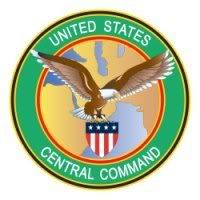Blackwater Security In Iraq Incident
I happened to notice several hits coming from search engines looking for "Blackwater". I'm not a genius, but it appeared something was up. So I did a search. Apparently; Blackwater Security was involved in a shoot-out. I'm pretty sure Blackwater's policy is only fire when being fired upon. Since they were in Iraq, it's not unfathomable that they were being fired on. Nevertheless; the Iraqi government announced that they were revoking Blackwater's license to operate in Iraq and those responsible would be held accountable.
Iraq's Interior Ministry has revoked the license of Blackwater USA, an American security firm whose contractors are blamed for a Sunday gunbattle in Baghdad that left eight civilians dead. The U.S. State Department said it plans to investigate what it calls a "terrible incident."
In addition to the fatalities, 14 people were wounded, most of them civilians, an Iraqi official said.
Sunday's firefight took place near Nusoor Square, an area that straddles the predominantly Sunni Arab neighborhoods of Mansour and Yarmouk.
The ministry said the incident began around midday, when a convoy of sport utility vehicles came under fire from unidentified gunmen in the square and the men in the SUVs, described by witnesses as Westerners, returned fire.
One witness told The Associated Press that he heard an explosion before the gunfire began.
"We saw a convoy of SUVs passing in the street nearby," Hussein Abdul-Abbas, owner of a mobile phone store in the area, told the AP. "One minute later, we heard the sound of a bomb explosion followed by gunfire that lasted for 20 minutes between gunmen and the convoy people who were foreigners and dressed in civilian clothes. Everybody in the street started to flee immediately."
A team from another security company passed through the area a few minutes afterward.
"Our people saw a couple of cars destroyed," Carter Andress, CEO of American-Iraqi Solutions Groups, told CNN on Monday. "Dead bodies, wounded people being evacuated. The U.S. military had moved in and secured the area. It was not a good scene."
An Interior Ministry spokesman, Brig. Gen. Abdul Kareem Khalaf, said, "We have revoked Blackwater's license to operate in Iraq. As of now they are not allowed to operate anywhere in the Republic of Iraq. The investigation is ongoing, and all those responsible for Sunday's killing will be referred to Iraqi justice."
U.S. Secretary of State Condoleezza Rice was to call Iraqi Prime Minister Nuri al-Maliki on Monday to discuss the matter, State Department spokesman Sean McCormack said.
According to a former State Dept official, Blackwater doesn't need nor have a license to be revoked.
Questions are being raised about the efficacy of Iraq’s attempt to close down Blackwater's operations in the country after civilian deaths.
Iraqi Interior Ministry officials told reporters in Baghdad Monday they would revoke the company’s license and initiate criminal proceedings after Blackwater contractors providing security for U.S. diplomats allegedly opened fire from aircraft into a Baghdad street -- killing 11 people, according to some reports.
The problem is, Blackwater does not have or need a license, and its employees are not subject to Iraqi criminal jurisdiction.
Former senior State Department official Larry Johnson wrote in his Web long No Quarter Monday, “Blackwater does not have a license to operate in Iraq and does not need one. They have a U.S. State Department contract through (the Bureau of) Diplomatic Security.”
U.S. State Department security staff, whose duties Blackwater contractors perform in Iraq, typically enjoy the same immunities accorded to all foreign diplomats.
They are operating under a contract by the United States. In fact, Blackwater cannot be arrested or tried in Iraq because of the Military Extra-Territorial Jurisdiction Act (.PDF) Which states:
To amend title 18, United States Code, to establish Federal jurisdiction over offenses committed outside the United States by persons employed by or accompanying the Armed Forces, or by members of the Armed Forces who are released or separated from active duty prior to being identified and prosecuted for the commission of such offenses, and for other purposes.


















